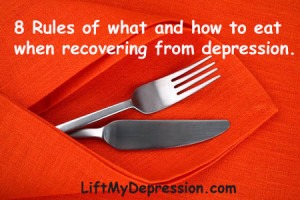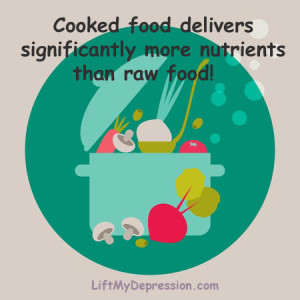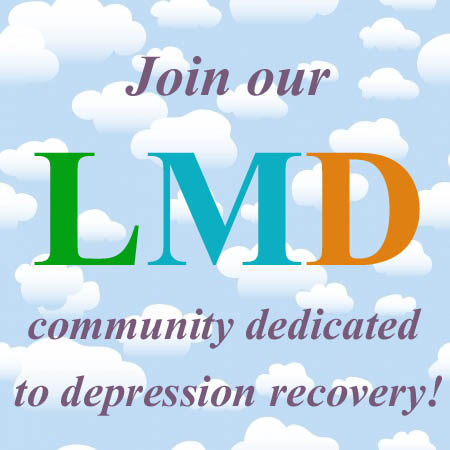 Last week I promised to share with you what I consider a good diet when suffering with depression.
Last week I promised to share with you what I consider a good diet when suffering with depression.
Please bear in mind that this is what I personally follow to keep my energy levels up and even, and my brain healthy, creative and vibrant.
These are my rules and I do not claim that everyone should/must/ought to follow them. Neither can I claim that if you religiously follow them, your depression would miraculously be lifted after a week or so.
I have studied nutrition for a few years now and I am very lucky to be learning from my amazing mentors who understand nutrition well and are based in four different countries across the globe (UK, USA, China and Russia).
I encourage you to use my rules as your tools. Use the best, discard the rest!
So, here are my rules of what and how to eat when recovering from depression:
- Eat 5-6 small meals a day.
Food gives us energy: the very thing that depression takes away from us. So, it is vital to provide your body (especially your mind) with a regular and consistent supply of energy.
Just beware, that eating too much food in one sitting can deplete your energy (You have probably experienced it after a huge dinner). Digesting food is energy-consuming. Therefore, keep your portions small and eat often (every 3-4 hours during the day).
Note: a small portion should fit in the palms of your folded hands forming a bowl, without spilling over.
- Do not attempt to go on a diet or change your food drastically all at once.
Depression recovery is not the right time to diet or lose weight.
Neither is it a time to throw your usual diet out of the window and load yourself with something “trendy”, portrayed by the media as a new magical cure for depression.
Yes, you can add or take away things over time, but doing it abruptly or all at once would send your brain haywire.
It can make you irritable in no time. It can lower your mood further and it can make you feel really bad should you decide to put a stop to this self-abuse.
So, please no dieting!
Warning: If you are a vegetarian or vegan, consider giving it up immediately until your depression is lifted! You job is to feed yourself properly to raise your energy levels to assist your recovery. As far as I know, it is very challenging to obtain all the needed amino acids, vitamins and heme iron, in particular, via vegetarian or vegan diet.
- Aim for a wide variety of food and introduce it slowly.
At first glance, it might contradict my rule #2, but the key word here is “slowly”. Take your time to build a wider range of food from which your body and mind obtain your macro- and micro- nutrients.
Only eating a wide variety of food from various sources can possibly guarantee that you are getting adequate nourishment. (This is probably due to our modern ways of farming and storing food…)
Every week introduce something new to your diet that is beneficial for your health and recovery.
Evaluate how your body and mind respond to this new food. Does your energy go up, down, or stay the same?
- Buy food with as few ingredients as possible and preferably pronounceable.
When shopping (or if anyone is shopping for you) have a quick look at the list of ingredients.
If it’s a long list, pick up a similar item and look at its list of ingredients. Which one is shorter and easy to understand?
Say you are getting a box of salt. Is it just a natural sea salt with nothing else added or is it a table salt with added sodium ferrocyanide? This is, by the way, added to make salt free-flowing but what effect does it have on your bio-chemistry and your health?
Take manufactures’ claims that “everything is added for your convenience” with a pinch of salt.
Don’t worry about marketing claims (or warnings) on food packages.
For example a claim on a natural sea salt package: “Does not contain iodine”…
So what?
You will get your iodine from somewhere else if you are feeding yourself properly.
Right now, during your recovery, you need to commit to eliminating nasty health-hazardous chemicals out of your diet.
They will surely be digested anyway, but it would cost your body extra energy to deal with them. As far as I know, you need every single bit of your energy to deal with depression not with constant toxic overloads.
So, please follow the rule of buying products with fewer and easy to understand ingredients.
- Add extra ingredients to your food to boost its nutritional value.
Now, that you are all set to eliminate unnecessary (even possibly toxic) substances out of your food, begin asking a question at every meal:
How can I take the nutritional value of my meal just one step further?
Say, you are having cereal or oats for breakfast. Can you add a teaspoon of cinnamon to it?
Or you are about to consume fish and chips. Can you sprinkle them with some chopped herbs (e.g. parsley, dill, chives etc.) to introduce extra vitamins and minerals to your body?
Develop a habit of pausing and asking this question before each meal: “Can I take this meal one step further by adding something extra nutritious to it?”
Google the content of your spice rack one by one. You would be amazed at the medicinal and nutritional value most of your jars have to offer. Countries had wars to obtain those precious gifts of nature!
- Eat cooked food most of the time.
This rule is not as hard to implement as you think!
Yes, cooking for each meal is not easy to do if you are recovering from depression, but if you’ve never thought of what makes food “cooked”, read on. I was personally very surprised when I found out.
But first let’s visit our history…
Human brains evolved fast when our ancestors began cooking and preserving their food.
Some would think that brain evolution was due to the fact that they had extra time away from hunting/gathering just to sit and think themselves smart or make more babies that would eventually become smarter and, thus, would have better chances of survival into the adulthood…
It could be…
But…
The fact is: our ancient grandmas and grandpas no longer had to spend hours just munching “raw stuff” to deliver nutrients into their blood streams.
 By cooking food, our ancestors found a way to break the hard, strong and resistant-to-digestive-juices cell-walls in plant food and, therefore, began ingesting all the nourishment out of food rather than pooping most of it out. (Elephants still do just that and guess what? They still eat 16-18 hours a day!)
By cooking food, our ancestors found a way to break the hard, strong and resistant-to-digestive-juices cell-walls in plant food and, therefore, began ingesting all the nourishment out of food rather than pooping most of it out. (Elephants still do just that and guess what? They still eat 16-18 hours a day!)
When we think of cooked food we immediately assume that the food has been heated.
However, food can be cooked in many other ways: drying, macerating, freezing, fermenting, preserving in oil, sprouting, marinating etc.
So, a salad with an olive oil mixed in is a cooked salad! 🙂
The bottom line is: cooked food delivers significantly more nutrients than raw food!
No wonder that all over the world, well-cooked meat broths are served to people recovering from an illness.
- Drink nourishing herbal infusions every day.
This one I learned from my vibrant, joyful, high-energy mentor: Susun Weed.
In brief, it requires you to spend a few minutes to prepare (cook up!) a jar of highly nourishing herbal infusion (very strong tea). It would then need to be left steeping for at least 4 hours to release all the nutrients into the water, but it does not require any more effort on your part.
During the day, you drink the prepared infusion as you would normally drink water (or coffee, or tea, or whisky, or whatever you are usually drinking). You can even add it to your usual drink, if you don’t like its taste on its own.
Word of caution: ONLY use herbs suggested by Susun (e.g. nettles, oatstraw, clover etc.), and please do not even think of experimenting with other herbs outside her suggestions.
Many herbs are poisonous (including chamomile and peppermint, which are fine as teas but poisonous to drink as infusions).
Watch Susun’s videos, read her blog, explore what she got to say and follow her method to the dot! Here is a link to start you off: Click here!
I personally adore my infusions and what they do for my energy! When I get lazy or side-tracked by life and stop making them, my body takes a beating. They do give a huge boost to my energy levels!
- Don’t cry over eaten cake (or whatever junk food you have gobbled up that is not considered nourishing or healthy)!
Is it possible to feed yourself well all of the time?
I personally cannot claim I can do it yet!
I know what is good for me and I tend to follow my rules most of the time…
But…
I do break them!
When I travel, when I am busy, when I am lazy, when I am overwhelmed, when life throws some unexpected bad news at me…
On occasion, I would gobble up a cake so to speak…
And when I do it, I don’t beat myself up!
That was my emotional food. I needed it! It felt nourishing at the time of ingesting. It was serving the purpose to comfort me and/or calm me down.
I acknowledge it and re-commit to feeding myself properly!
Then I stroll to the kitchen and brew myself some nourishing herbal infusion and plan my next meal…
Love, light and healing!
P.S. That is probably the longest blog article I’ve written so far. I can talk about food all day long. So, if you have any questions, ideas or suggestions just send me an e-mail or leave me a comment.
Original images by: 123rf.com

Leave a Reply